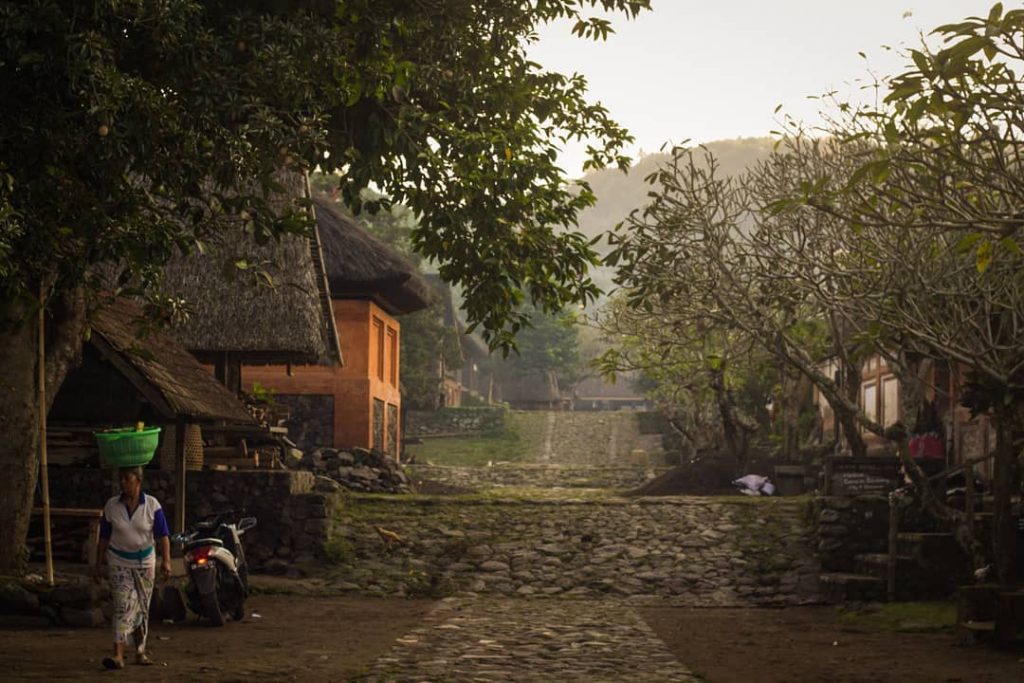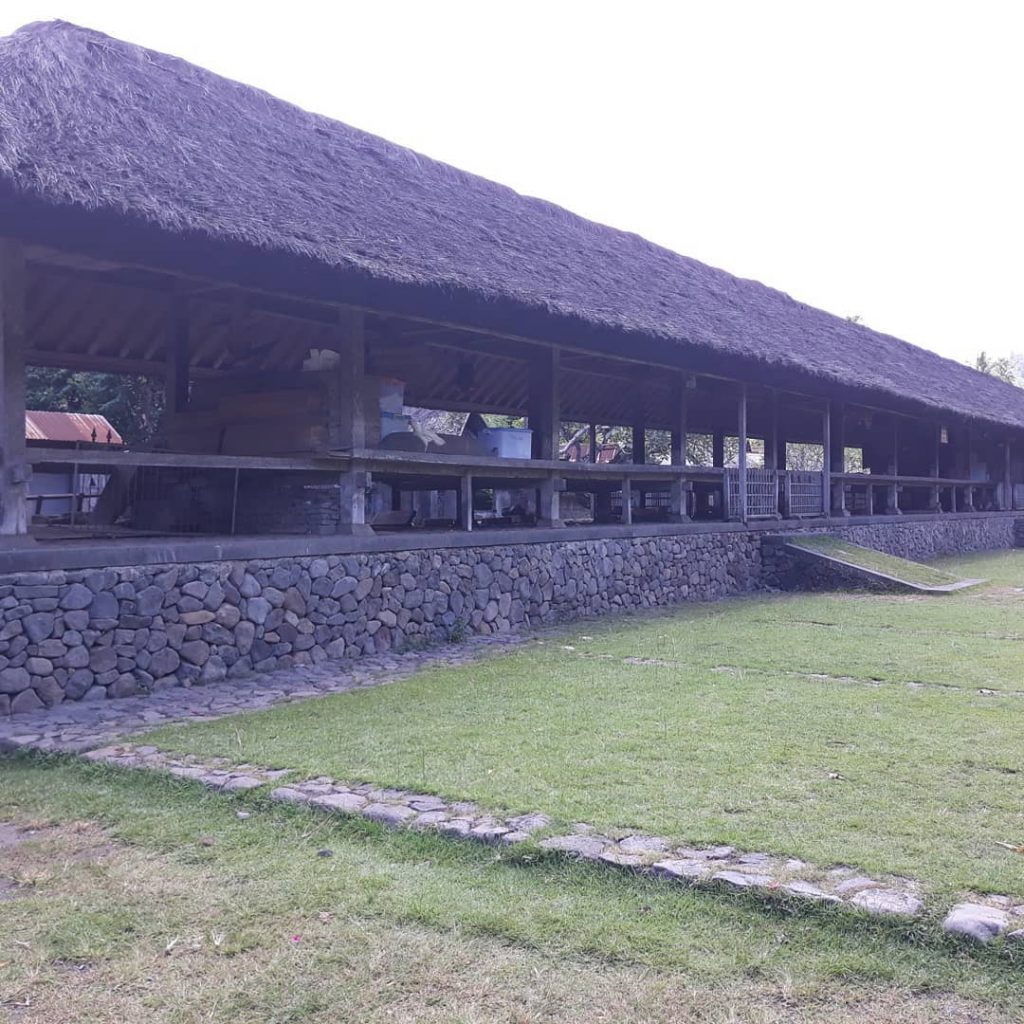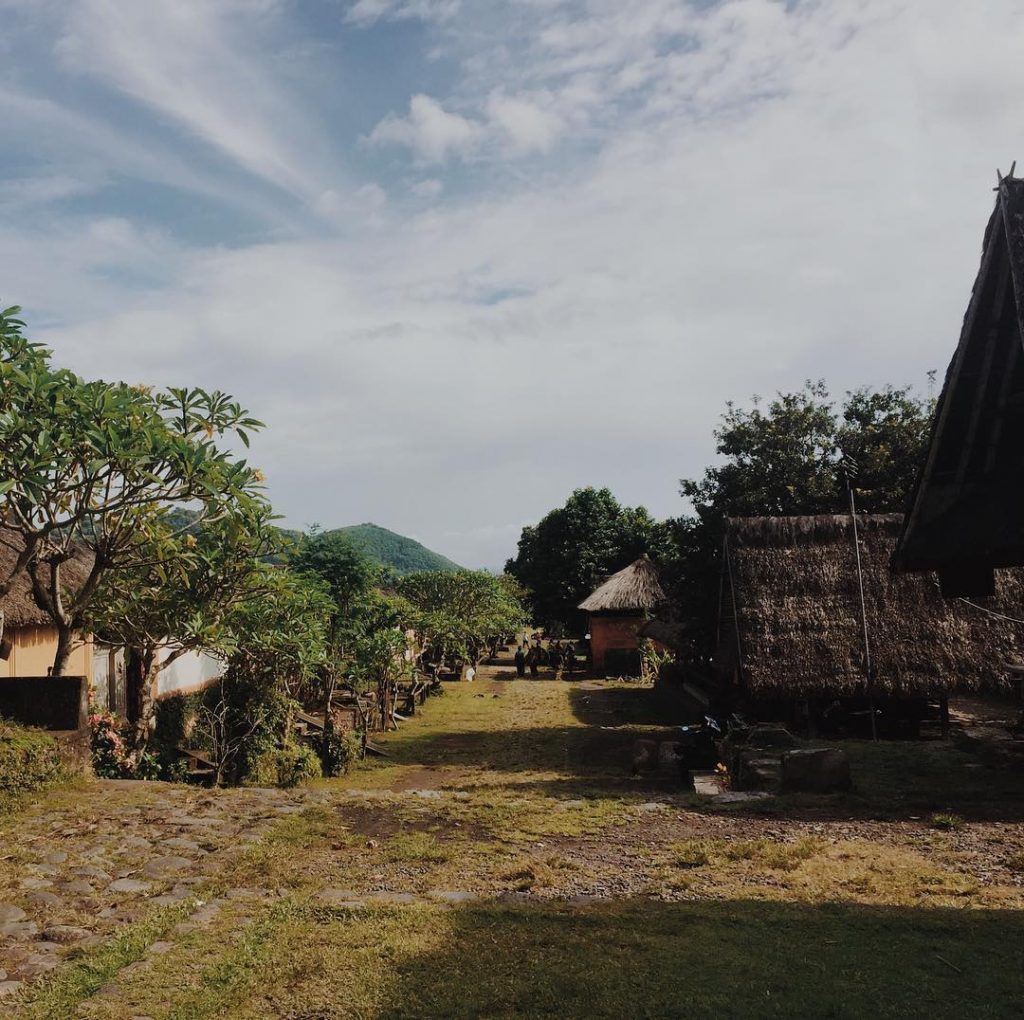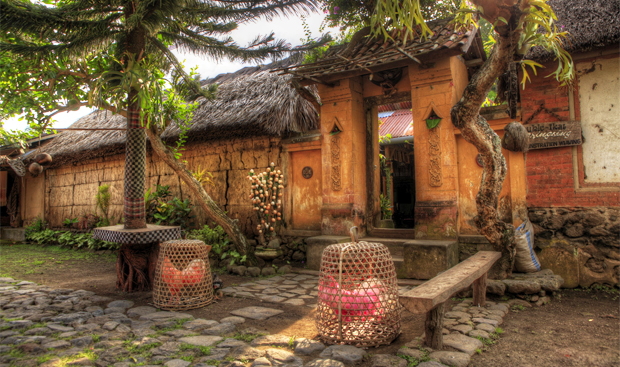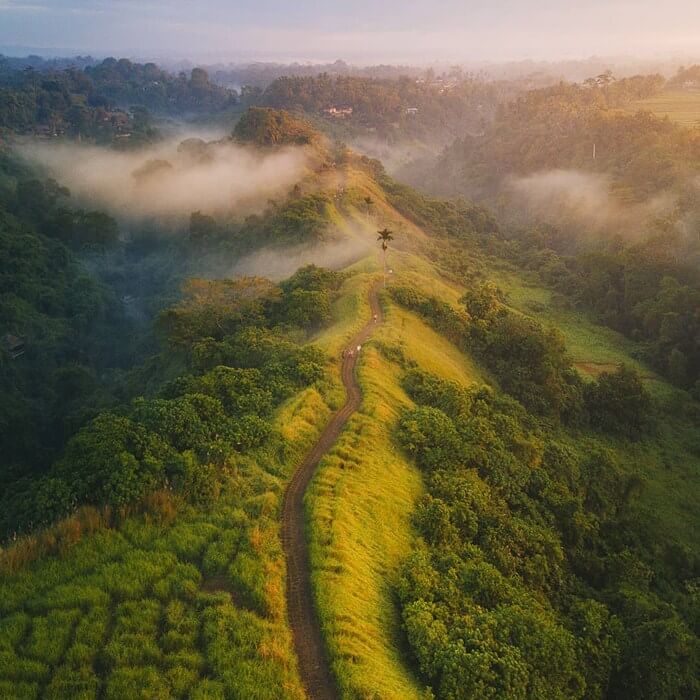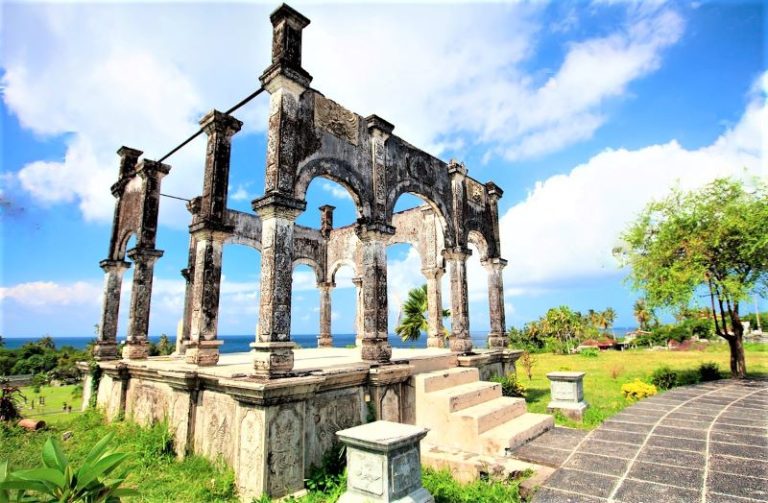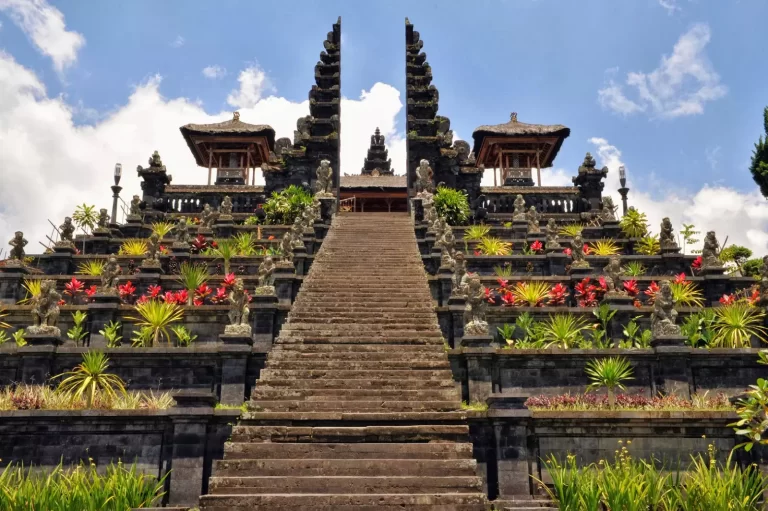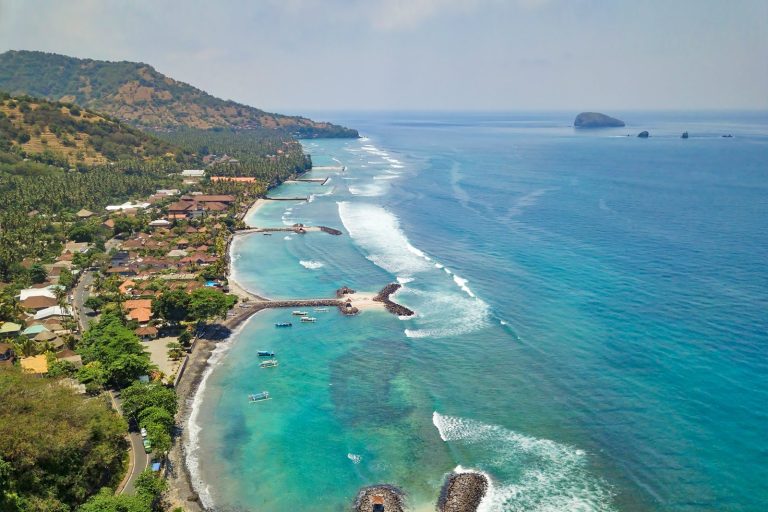Tenganan Pegringsingan or Pageringsingan is a village in the regency of Karangasem in East Bali, Indonesia. Before the 1970s was known by anthropologists to be a secluded society in the archipelago.
Rapid changes have occurred in the village since the 1970s, such as the development of local communications by the central government, the opening up to tourism, the breaking of the endogamic rules.
Tourists are attracted to Tenganan by its unique Bali Aga culture that still holds to the original traditions, ceremonies and rules of ancient Balinese, and its unique village layout and architecture. It is known for its gamelan selunding or Gambelan selonding music played on iron metalophones and gringsing or geringsing double ikat textiles woven in only 3 places in the world.
According to legend, the people of Tenganan Pegringsingan were selected by the Hindu god of storms and warfare Indra to administer a territory that was conceived in accordance with his divine plan to be a microcosm of the world. They were instructed to use every means to keep it pure and clean. The concept of territorial, bodily and spiritual purity and integrity is of paramount importance in the village.
Another variation of this legend is of the magical horse Uccaisrawa, of King Udayana, ruler of the 11th century kingdom of Bedahulu. The horse was to be sacrificed but escaped. The king was distraught and sent search parties out to find him. A group of trusted servants, men from the Peneges family were assigned to search the eastern area of the island in the area of Karangasem. The king had promised a huge reward to whoever found Uccaisrawa, however when they did find him, he had died of exhaustion.
The king rewarded the finders with the land for as far as the smell of the dead horse could be detected. The men of Peneges dismembered the horse and carried the parts to various places around the place where the horse had died. Unknown to the king’s men, the Peneges men had hidden portions of dead horse into their clothes, so the rotten smell followed them everywhere until the king’s men decided it was enough land and left.
The Peneges men brought their families to the place called ngetengahang which means “to move to the middle”, a valley now known as Tenganan Pegringsingan. It also is named after the double ikat geringsing cloth that Indra taught the women to weave. It sparkled with star motifs that emulated his divine realm.
